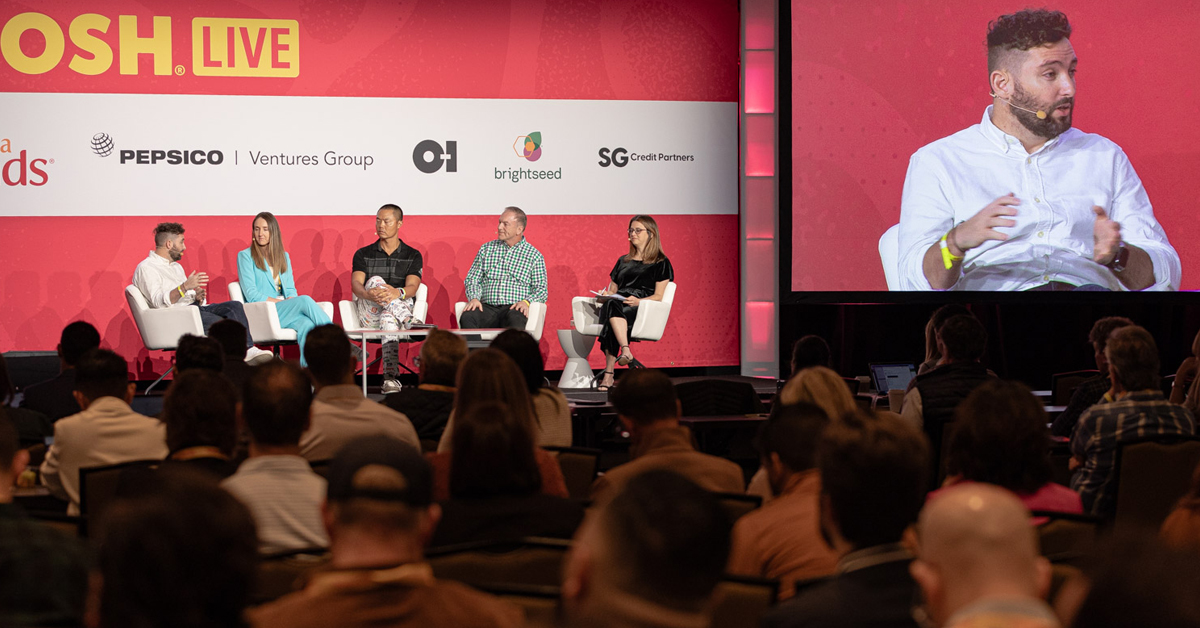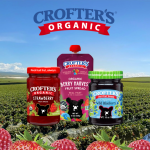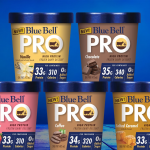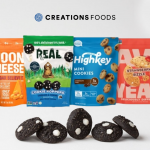NOSH Live Winter 2023 Day One Recap: The New Era of the Natural Food Biz

On day one of NOSH Live Winter 2023 in Marina Del Ray, California, natural food industry leaders offered their insights into the fast-changing modern era of business, in which the rules of investment, merchandising and leadership look vastly different than even just a year ago.
The Post-COVID Era of Food
In the first panel discussion of the day, industry leaders dove deep into how brands and retailers are thinking differently about growth in this new post-pandemic era of CPG.
The panel featured a selection of voices from different business arenas, including investor Wayne Wu of VMG Partners, Whole Foods VP of dry grocery Dan Epley, and two brand executives with That’s It chief sales officer Katie Eshuys and The Good Crisp Company co-founder and CEO Matt Parry.
Wu broke the past four years in the industry down into distinct periods: the pre-COVID era up through 2019, the “COVID bump” era of rapid growth in 2020, and now the “Price Increase Era” that has spread consumers wallets thin and challenged brands looking to increase velocities while simultaneously raising prices due to inflation.
Largely, Wu identified the pre-COVID focus by brands and investors on growth and revenue at all cost as a problem for the industry that many companies are still working to move beyond. At VMG, Wu said his firm was always skeptical of that model of business and that brands looking to now prioritize long term profitability and stability need to honestly assess their own supply and demand levels – not just overproducing supply for demand that may or may not come.
“We found that companies ran into issues where they didn’t properly assess what true demand was of their product,” Wu said. “They made supply decisions related to people, costs, inventory, or capex related to manufacturing. And when companies have misaligned those things, they run into severe issues.”
One characteristic of our modern era, he added, is a shift away from companies seeking to become platform brands, with many instead returning to smaller and more focused product offerings. Epley noted that while there continues to be strong innovation in the industry, brands that stick to their core, rather than branching out into numerous categories, tend to have stronger foundations that can lead to longevity in retail.
“There’s lots of times where brands get excited about that shiny thing, and that distracts them from the core and if they miss the core then the whole thing falls down,” he said.
But that’s not to say brands can never expand their platforms – they just have to do it consciously and carefully. At That’s It, a fruit bar brand, Eshuys noted that the brand did expand into a new category last year, introducing a new dark chocolate truffles line. She said the brand recognized that its new innovation would need to be incremental to the chocolate category if it was going to be able to expand beyond fruit bars.
“We’re not targeting the traditional chocolate cashew, we are targeting a younger consumer and ones that are typically looking for discovery.”
Looking ahead, the panelists also discussed the impact of high pricing on the industry, including lower volume sales. Wu suggested that the worst of inflation is likely now passed, and retailers are beginning to push for lower prices. Where brands will need to prove their ability to grow long term is not in dollar sales, but units.
“I think we’re gonna see the strength of brands come to light by next summer,” Wu said. “If you’re seeing brands still truly growing on a same-store velocity basis. And so we’re really focused on looking at unit growth.”
The Next Gen of Investors
Shortly after the first panel of the day, a trio of millennial investors tackled the question of how brands can more authentically market to younger consumers.
The group featured Patrick Schwarzenegger, an investor in brands like Super Coffee, Blaze Pizza and Liquid I.V. and co-founder and CEO of protein bar brand MOSH; Elizabeth Brown, an investor at Vanterra Ventures; and Mel Li, an investor at tech-focused firm Offline Ventures.
In an era of celebrity-backed brands, one big topic during the discussion was how brands can properly go about working with a celebrity investor or ambassador.
Li noted that today’s consumers are “savvy” and can often see through cynical cash grabs, so having influencer partners who have a proper connection to a brand – whether it’s through a social mission or genuine love for the product – is important to making any major partnership between brand and celebrity work. Investors, she said, also pay attention to those relationships and look for whether or not a celebrity partnership is truly benefitting the brand.
Brands can also use their own social media to communicate authenticity. Brown cited “storytelling” as an important component in marketing and establishing brand identity that helps create consumer loyalty – and good stories need to have some ups and downs to capture attention.
“A lot of companies we’ve seen really pull back the curtains and bring their customers into their product development process,” she said. “[They] show them the trials and tribulations of early stage brand. Some companies in this space I’ve seen do this really well include the Mid-Day Squares team, Omsom – they’re always telling their consumers when things are going well, as well as when things are going poorly.”
But brands shouldn’t feel like they need a celebrity to succeed. Schwarzenegger – himself an actor who co-founded his current brand with his mother, journalist Maria Shriver – noted that numerous brands today still succeed without celebrity investors or A-list influencers. What those brands do have, however, is patience, he said.
“We’ve seen a lot of direct-to-consumer brands that have really gone down the drain because they’ve kind of gone after that approach of just revenue, revenue revenue,” Schwarzenegger said. “A celebrity does one great thing for you, which is it builds the brand awareness. But what it doesn’t do is repurchase consumers. Consumers at the end of the day, if the product isn’t great, they’re not going to come back and repurchase it just because there’s a celebrity.”
Also on Day One of NOSH Live Winter 2023:
- Kevin Lee, co-founder of premium instant ramen brand Immi, talked about how he doesn’t like to raise money and has taken a frugal approach to building the brand – even refusing to purchase any “swag” until he felt the company was in a stable financial position.
- Trü Frü founder and CEO Brian Neville, Houlihan Lokey VP of consumer, food and retail investment banking Brandon Ng, and former Mars Snacking VP of global business development broke down the frozen brand’s acquisition by Mars last year, including how the brand’s strong margins made it a high priority target for a sale.
- Max Crowley, VP of merchandising for GoPuff, discussed the ecommerce delivery service’s strategy, including how LTO partnerships with brands like Hot Ones have helped drive sales.
- Charlotte Apps, global EVP for consumer products at Bain, broke down the traits that insurgent brands like Once Upon a Farm, Caulipower, Liquid Death and Real Good Foods have in common and discussed how the firm observes the market to find those brands on the rise.
Stay tuned for more stage content from day two of NOSH Live tomorrow!

















